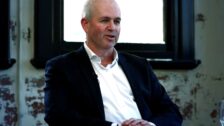‘The foundations are pretty soft’: Correlation considerations taking centre stage
“Our view was that the world didn’t need another bond fund,” Fortlake Asset Management’s founder Christian Bayliss said at The Inside Network’s Investment Leaders Forum in New Zealand.
While bond fund’s have tremendous utility, he told the room full of advisers and money managers, the Fortlake team wanted to use the “deep, liquid” fixed income market and “all its redeeming features” in a novel way, a way that would create a new way to det up a non-correlative source of stable yield.
That desire eventually led to the team leveraging a newly systematic default system, otherwise known as the “tranche market“, which sprung from the ashes of the GFC bonfire and has grown from a standing start to a US$1 trillion market. It is now the fastest growing sector in capital markets, eclipsing even the global private credit supernova.
But the ‘why’ here is central to the ‘what’. Why would Fortlake focus on defaults to compliment a suite of bond funds, when there are so many other markets with well-trodden paths that provide a modicum of non-correlative benefits?
The answer, he explained, is that the importance of non-correlation is such that it can’t just sit on the sidelines, and it isn’t something that can effectively be sourced using existing methods. The global market has gone through so many non-analogous events since the GFC, he said, that the potential for severe market ructions is elevated. To counter that, investors need a higher degree of non-correlation.
“We’ve had an elongated economic cycle condensed into three and a half years, [going] from disinflation to double digit inflation in most of the G7 economies. We’ve had wars. We’ve had a crappy little tech bank that exploded and caused the highest level of treasury volatility on record,” he said. “All of these things show us that the foundations are pretty soft and that the world isn’t what we think it is, and that when you come out of a one-in-100-year pandemic, searching for alternative types of returns might actually be one of the better types of decisions that you make, because the one thing we don’t have experience in is coming out of pandemics.”
Essentially, he says, there are more unknowns in the market now than at comparable periods. And while the danger of a sudden and deep fracture is elevated, the importance on non-correlative elements is portfolio construction is also higher.
That need drove the Fortlake team to focus on the default market, which essentially performs better when more corporate defaults occur. It’s an opportune time to do so, he said, because the default market system has significantly improved in the wake of the GFC. A “proper” default auction system for broke corporates has been one of the most “dramatic changes” to come out of the crash, and no one has yet exploited the default system in a systematic way.
“It’s a system that’s built around defaults,” he said. “What we want to do is build strategies around a lack of knowledge. That might sound weird to a lot of people, but we really thrive on our lack of knowledge across the markets, and we really try to build a systematic type of process that feeds on uncertainty and ultimately tries to exploit that through time.”











